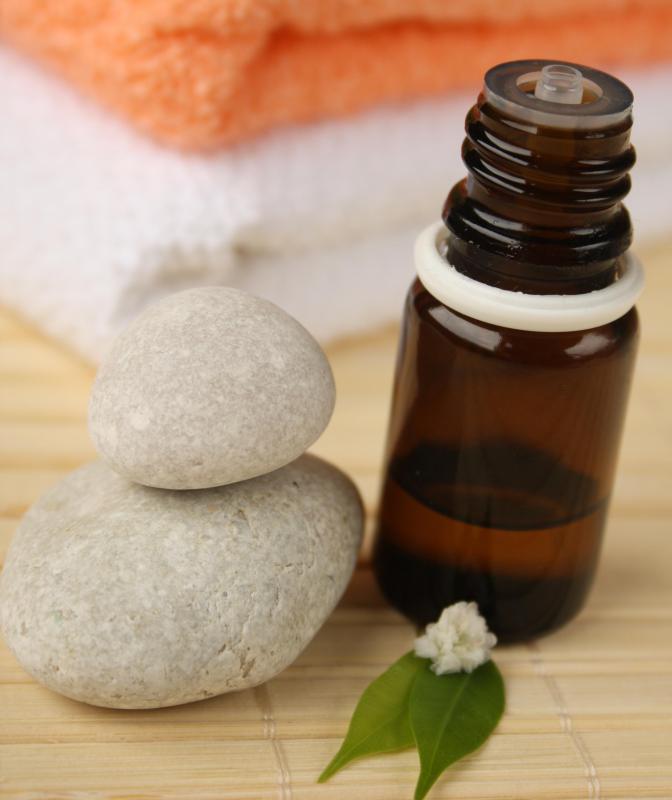At BeautyAnswered, we're committed to delivering accurate, trustworthy information. Our expert-authored content is rigorously fact-checked and sourced from credible authorities. Discover how we uphold the highest standards in providing you with reliable knowledge.
How Do I Choose the Best Biodegradable Soap?
In choosing the best biodegradable soap, you have to look at the most important element: the soap’s ingredients. Looking at the ingredients will help you to see if the soap really uses natural and organic ingredients as it claims to do. This will also tell you if the soap is effective enough to remove dirt and grime from your hands or from your dishes. For some people who not only advocate a “green” lifestyle, but also support animal rights, choosing a soap with the right ingredients is very important to make sure no animals were harmed to produce the soap.
Many people think that a biodegradable soap will always have natural ingredients, but this is not necessarily so. “Biodegradable” simply means that the ingredients of the product will naturally decompose over time, but it does not necessarily mean it will not cause harm to the environment. Some biodegradable — and usually non-toxic — chemicals found in biodegradable soaps are sodium lauryl sulfate, sodium sulfate, and lauryl alcohol, all of which are effective in removing oil from surfaces. These ingredients are also Food and Drug Administration (FDA)-approved and can be derived from natural sources, though they are also synthetically produced.

Some ingredients to avoid are chemicals containing phosphorus, the same element that causes matchsticks to light, as they can negatively affect algae and other aquatic flora. You should also avoid soaps with antibacterial chemicals, especially triclosan, a common ingredient in deodorants and soaps. Triclosan has been found to be a dangerous pollutant not only to the environment, but to humans and animals as well.

To choose a genuine biodegradable soap, many environmentalists and cosmetologists recommend looking for natural ingredients that are derived from plants. Some ingredients you can look for are tea tree oil, aloe vera, honey, and lemon, all of which are effective antibacterial ingredients. If you’re looking for moisturizing ingredients, coconut oil, cocoa butter, and olive oil are good choices that will also give your skin a nice scent. Citronella oil can also be included in a biodegradable soap as its scent repels insects.

A biodegradable soap does not only refer to body soap, but also to dishwashing and clothes detergents and car soaps. Dish soaps are allowed to contain phosphorus, but it is best to avoid such soaps not only to help the environment, but also for health reasons. As for clothes detergent, go for soaps that have “scent-free” or “naturally scented” labels on them, in order to make sure no non-biodegradable fragrances are added. When it comes to car soaps, you can avoid ingredients like chlorine and petroleum, both of which can contaminate the water. If you want to further help the environment, you can also go for waterless car soaps that need only be wiped away.
AS FEATURED ON:
AS FEATURED ON:















Discussion Comments
I have cruelty-free vegan cleaning soap that contains several natural oils but also something called "potassium hydroxide." Does anyone know if this is something natural and biodegradable. The soap seems to be biodegradable otherwise.
@bluedolphin-- You don't need to be an expert to know if the ingredients in a soap are biodegradable. A biodegradable soap usually contains only a few basic ingredients. There shouldn't be a whole paragraph of ingredients and chemicals you can't pronounce.
I actually think that it's a good idea to check the ingredients in a product even if it says things like "all natural" or "organic." The FDA does not oversee the use of these terms. So basically any manufacturer can say that their product is "natural" on the label. It doesn't necessarily mean that it is.
To be honest, I don't really check the ingredients list of my biodegradable soap. I purchase it from an organic store and it says biodegradable on the label. So I trust it and just go with it.
Since people are becoming more conscious -- health wise and environment wise-- I don't think any manufacturer is going to hide the fact that their product is biodegradable. It's a good thing, so they make sure to advertise it that way and put it in large print on the label.
Considering how far environmental pollution has gotten in the past few decades, those who can afford it need to go the environmentally friendly way and use biodegradable soap at home.
Post your comments